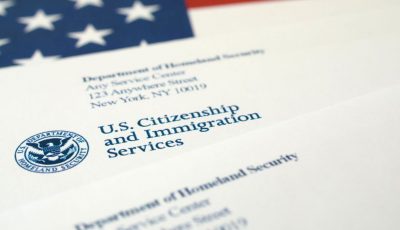Chamber: Added ID for CW workers redundant
Foreign workers already have passports, work visas, and receipts. This time, a bill proposes a new identification card for foreign workers, to be shouldered by employers at a cost of $50 each. That has got the business sector crying foul.
“The bill will just duplicate the business sector’s federal responsibilities and expenses. There’s got to be another way of doing it that doesn’t require the business owners to carry the burden,” said Saipan Chamber of Commerce president Velma Palacios.
House Bill 20-68 would require Commonwealth-only workers, or CW-1 workers, to be registered with the CNMI Department of Labor and for all employers to get identification cards that cost $50 each for their foreign workers. The bill passed during a House hearing held last Thursday.
The bill, authored by Rep. Blas Jonathan T. Attao (Ind-Saipan) notes, “This system will help the CNMI get a hold of the numbers of the CW-1 issued by the U.S. Citizenship and Immigration System. The bill sets a procedure that when a CW-1 is issued by USCIS, all non-immigrant workers must then register in the CNMI Department of Labor.”
“The Department of Labor will then record and maintain the files and documentation of all non-immigrant workers and issue a non-immigrant worker’s identification card.”
Attao believes that the bill is ripe for passage. “Our situation is getting worse. A lot of the problems that we face now in terms of manpower is that we don’t even know where the CW-1 numbers are going and the federal government is not passing that information down to us. If we had access, we wouldn’t have the problem happening in the hospital right now where we are losing healthcare workers like our nurses.”
“The bill will allow us to have access to the statistical data and we would actually know the exact numbers of how many people are being approved and for what positions,” Attao added.
The Chamber does not agree because it said this repeats a process that is already established and followed by business owners in terms of employee documentation and the identification card is costly especially for businesses that have several CW-1 hires.
“We document our own employees. We go through and follow the rules of the CNMI Department of Labor and USCIS. We are hiring documented and approved workers. If the government wants the information, why are they imposing on the business sector to do the work for the government? We are diligent in managing our employees with proper documentation. We are already in a bad place to find enough workers and to follow all the rules that exists. It is very difficult,” Palacios said.
“The CNMI Labor Department should be the one to keep the statistics because they require businesses to advertise on their website about job openings. They keep asking for this data and we keep providing them. We are not remiss in our responsibilities. …This bill is redundant and costly for the business community,” Palacios added.
Attao also hopes that the bill will encourage business owners to hire more local workers. “We have a growing population of nurses from [the Northern Marianas College], workers with skills and training from [the Northern Marianas Trades Institute]. We can now slowly decrease the dependency on CW workers and I think people should also see this is where legislation is coming from.”
Palacios was quick to say that the business community has been doing that and is aware of the importance of hiring U.S. citizens first.
“We are going through this process because, again, the perception is we haven’t been hiring U.S. citizens but we have. Businesses continue to do whatever it takes to locally hire. We have partnerships with NMTI, Latte Training [Academy], and conduct internal trainings. We hire foreign workers for jobs that require not only skills but years of experience in that field,” she added.
A provision in the bill states that registration in the CNMI Department of Labor and acquisition of a non-immigrant worker’s identification card is subject to the approval of the Department of Homeland Security-USCIS.
As per procedure, the bill’s next stop is at the Senate. The Senate hearing on the bill is yet to be scheduled.
“We are not saying it shouldn’t be done. We are just saying it should not be the business community’s burden to pay more than it should,” said Chamber executive director Jill Arenovski.



























